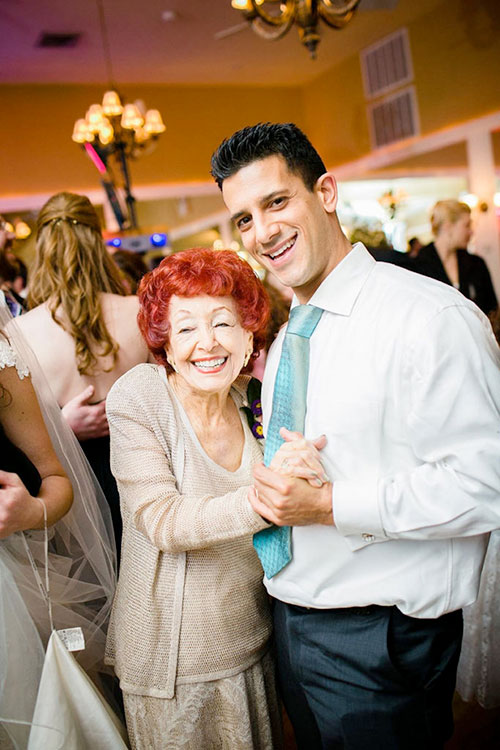How to Beat Holiday Stress with Aging Parents
By: Rosemarie Tamunday Casanova

Every year as the holidays approach, it becomes a priority to plan and coordinate the family gatherings. There is a certain level of stress that is expectedly a consequence of this and as these events are being anticipated, it is not surprising that emotions may tend to run high.
Planning a holiday is on its own, not a very easy feat, what with the purchasing of gifts, preparation of meals, travel logistics arrangements, etc. This challenge can get even tougher when you throw the care of aging parents into the mix, especially if they have some cognitive or physical health decline or impairment.
Elderly persons are sometimes known to get grouchy or irritable especially when they have to deal with large family gatherings. Finding the balance between family needs, expectations, and your own capabilities may be a bit tricky but it definitely helps you to have a strategy to deal with these anticipated difficulties.
How can you reduce the stress of holidays with your aging parents?
Here are a few strategies that you can adopt to help you prepare and better cope with the stress of holidays:
1. Have realistic expectations
As a caregiver, you may have to adjust your expectations, kind of like a brain reset.
You may be entertaining memories of perfect holidays in the past and may be pushing to replicate them.
This is not very realistic, and more likely than not, they were not as perfect as you remember them to be.
Also more importantly, people change and evolve over time, and situations change as a normal part of life. Accept the things you may not be able to change.
2. Avoid traveling if you can
If it is possible, arrange to have family come to you.
It might be a bit disruptive getting your aged family members into and out of cars, setting them up in a new environment, and getting them used to the new sights and sounds.
As elderly people love established patterns, this may not be the best especially if they are battling with a cognitive impairment.
Relatives can be encouraged to come spend the holidays instead. You could put them up in nearby lodgings if they can’t all fit in your house or if it’s their preference.
3. Plan early for care-giving help
In order to enjoy the holiday which you equally need and have certainly earned, it might be helpful to arrange to have a caregiver come along to relieve you of some of your care-giving duties.
You may either use a hired help or you could arrange with a family member or friend to help with the care giving. They could take turns to do this so that you are able to catch a deserved rest.

4. Clear the air with family
A lot of times, the burden of in home senior care is shouldered by one family member and it is not uncommon to have the rest out of the loop regarding the current health status of your aging parents.
This can also foster some feelings of resentment in the primary caregiver, a very understandable situation.
The holiday however, is not the best time to broach the subject as doing so may affect the overall mood or even ruin it totally.
It might be best to address this issue before or after the holidays. You could write a simple note explaining the current situation and may find that the others are more willing to get involved in the care giving process once they have better understanding of it.
5. Plan fun, engaging activities for your aging parents
It is quite easy to have the seniors forgotten or neglected during family gatherings especially large ones, and this might contribute to their feelings of grumpiness or sourness.
In order to prevent this, a good way to go is to plan activities that you know they enjoy, to give them a feeling of inclusion.
For instance if your aging mum likes to cook or bake, you could arrange a group cooking or baking session. Or perhaps your aging father loves to watch soccer. You could add a soccer game to the daily activities for everyone to partake in.
You could also have a little dancing session to their favourite songs.
In addition to this, allow them help with little things around the home if they offer to do so. No one likes to be idle and it is no different for your aging parents.
6. Maintain the routines
As much as possible, try to keep to the established patterns.
This is especially important if your parents have memory problems as routines are an important aspect of their lives.
You can set reminders for their medications, their appointments, their physical therapy, meals, etc.
7. Limit drastic dietary changes
A lot of seniors have sensitive digestive systems.
As tempting as it is to have an assorted array of holiday meals, consider staying within the scope that they are used to.

8. Allow them to reminisce
The holiday time can be a reflective one for all especially for your elderly parents who have seen and experienced a lot of them.
Allow them enjoy nostalgic feelings. You can give them family photos of loved ones. You can also play old tunes on their request.
Photography and music have been shown to be quite helpful in rejuvenating old memories, and this would be particularly beneficial for the ones with dementia or Alzheimer’s disease.
9. Don’t be too hard on yourself
Know that as much as you desire for your aging parents to enjoy a wonderful and special holiday, there is a limit to what you can do to influence their mood.
Some elderly persons may naturally be hard to please and may choose to remain stubbornly negative in their moods, while some may not be appreciative of the efforts you have put in.
If this is the case for you, remember to stay upbeat.
You have done as much as is within your power and that should be enough.
10. Do not aim for perfection
If there is a certain thing that you want but would be extremely stressful to have, you could let it go and find a suitable alternative instead.
Fancy decorations, repainting, and multi-course meals may sound great but remember that the holiday time is more a time of relaxation and reconnection with loved ones than anything else.
11. Maintain a positive attitude
Even with the best of planning, things sometimes go wrong anyway in spite of your efforts.
Rather than dwelling on them, focus instead on the positive aspects of the family get together.
Enjoy the little things as they are what makes it all worth the effort for you and for everyone else.
